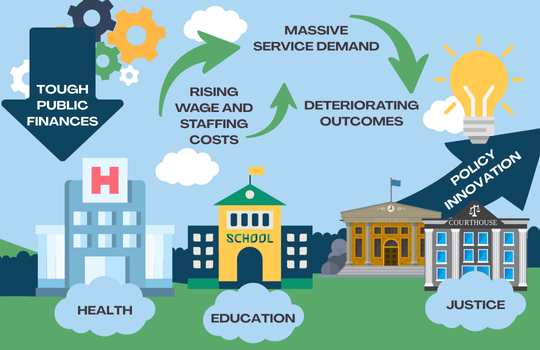Public service reform in Scotland is no longer optional – it is now urgent. While Scotland’s public bodies are under pressure from rising demand, constrained resources and accelerating change, they must still deliver better outcomes for people and communities. However, systemic inertia, fragmented leadership and uneven performance threaten the pace and depth of change required. How therefore do we now move from intention to action – across organisations, systems and localities – to deliver real reform?
Public services in Scotland face a complex mix of challenges – ageing infrastructure, workforce pressures, silo delivery models and a public increasingly sceptical of top-down change. Reforms promised in previous decades have often lacked scale, focus, or follow-through. Yet failure to implement reform now risks both service sustainability and public trust.
Against this backdrop, the Scottish Government’s 'Scotland’s Public Service Reform Strategy 2025' sets out an ambitious vision for transformation. It aims to shift investment upstream into prevention, redesigning services around people and place with the intention of saving £1 billion in public sector overheads over five years. Featuring more than 80 proposed actions and a significant number of different workstreams, the scale of its ambition is matched only by the implementation task ahead.
Beyond vision and aspiration lies the challenge of delivery. This will demand alignment across local and national government, public bodies and frontline professionals. Digital reform, organisational consolidation, smarter data use and clearer accountability all feature – but how will they be delivered in practice?
This conference will explore the Scottish Government's plans and will discuss how we can overcome structural, cultural and operational obstacles. It will examine what comes next in moving from strategy to meaningful delivery.
The conference will focus on three themes:
Topics to be discussed
Who should attend
All those concerned with the development and delivery of public services in Scotland, including:

Partner, Audit - Public Sector Assurance (London and Scotland)
Grant Thornton
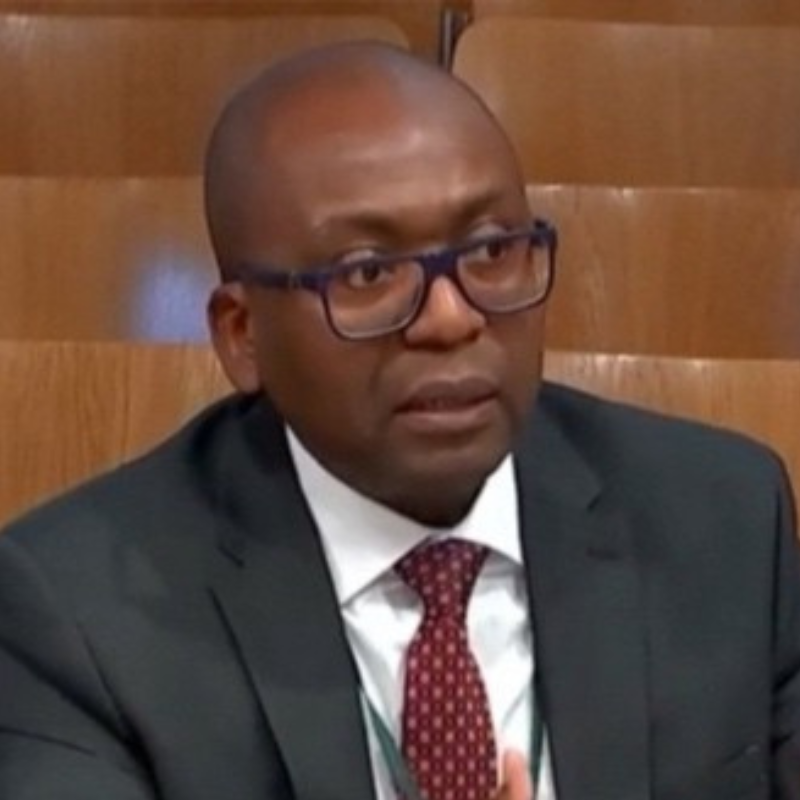
Audit Director (Public Sector Performance)
Audit Scotland
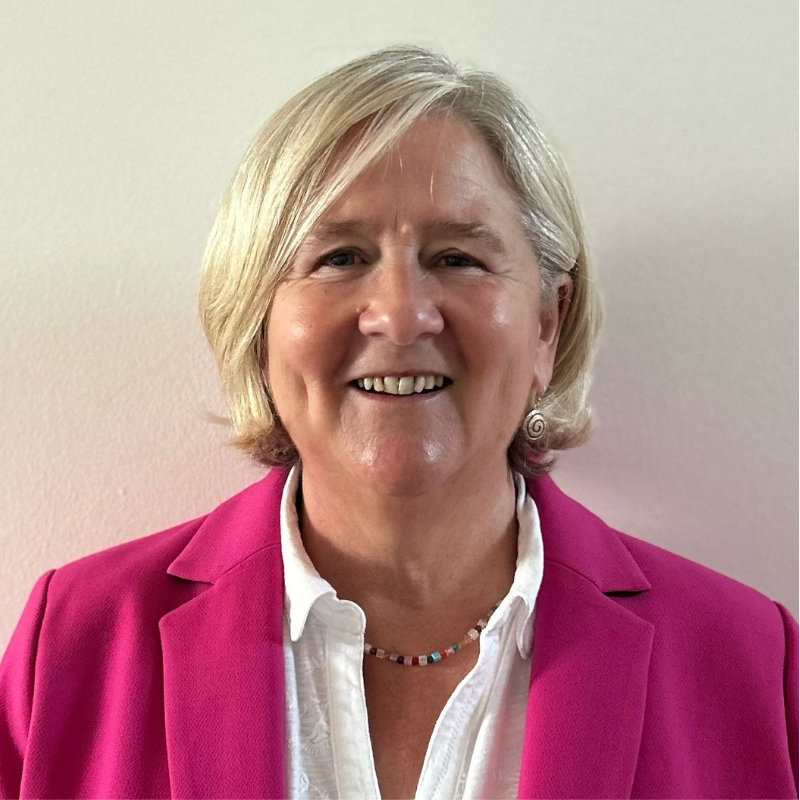
Chair
New Local

Emeritus Professor of Management
Queen Margaret University
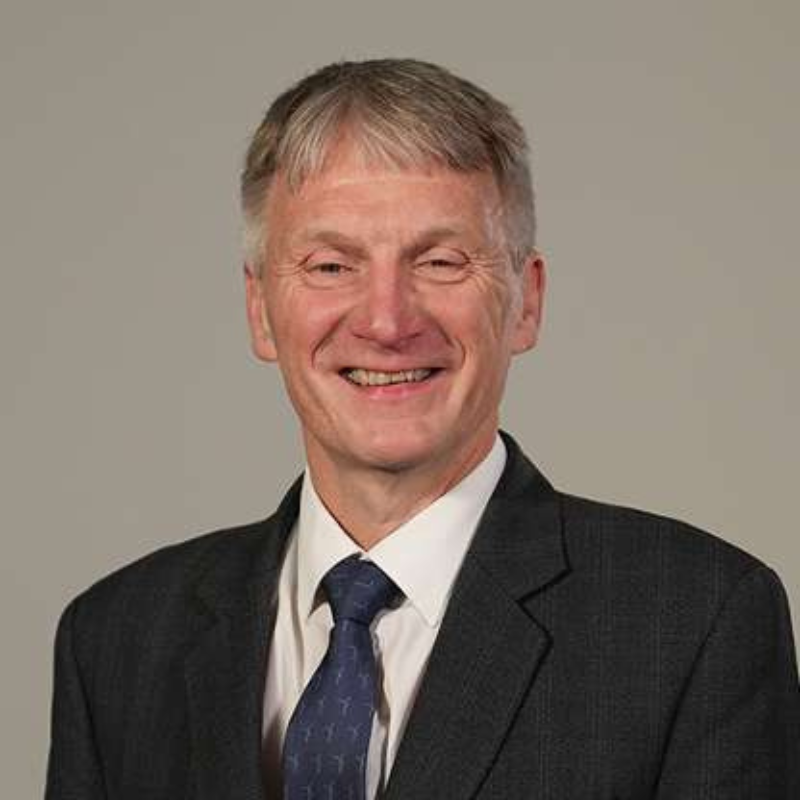
Minister for Public Finance
Scottish Government
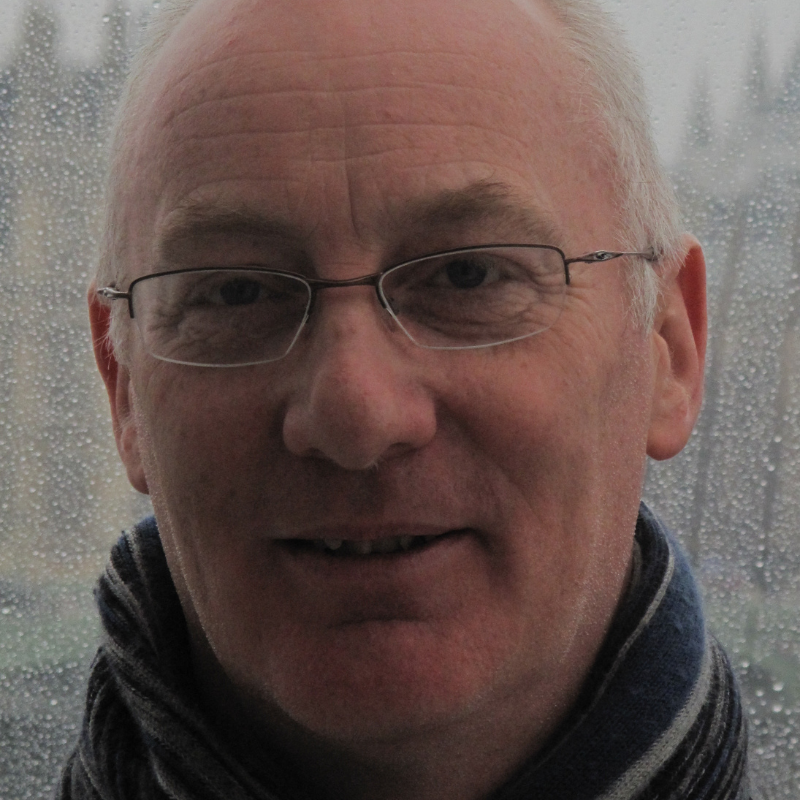
Professor of Public Policy
University of Edinburgh

Deputy Director
Fraser of Allander Institute

Chief Civil Architect
Leidos UK
10:00 Chair's opening remarks
Richard Kerley, Emeritus Professor of Management, Queen Margaret University
QMUniversity RichardKerley
Session 1: Resetting Scotland’s public services for a sustainable future – beyond business as usual
10:05 Why reform cannot wait – the tipping point for Scottish public services
Prof. James Mitchell, Professor of Public Policy, University of Edinburgh
EdinburghUni ProfJMitchell
10:20 Investing in prevention – redesigning public services around people
Dr Cornilius Chikwama, Audit Director (Public Sector Performance), Audit Scotland
AuditScotland
10:35 Question and answer session
10:50 Comfort break
Session 2: The realities of reform – challenges, risks and opportunities
11:05 Modernising the front door of public services – digital by design
Mark Watson, Chief Civil Architect, Leidos UK
LeidosInc
11:20 Sustainable financing for sustainable services – efficiency without erosion?
João Sousa, Deputy Director, Fraser of Allander Institute
Strath_FAI
11:35 Question and answer session
11:50 Comfort break
Session 3: Making it real – governance, next steps and delivery
12:05 Structures that deliver – accountability and governance that works
Joanne E Brown, Partner, Audit - Public Sector Assurance (London and Scotland), Grant Thornton LLP
GrantThorntonUK
12:20 Next steps, leadership for the long term and keeping up focus across political cycles
Katie Kelly, Chair, New Local
wearenewlocal Vibrant_Socks
12:35 Question and answer session
12:50 Comfort break
13:00 Keynote speaker – Understanding the 'Scotland’s Public Service Reform Strategy' agenda
Ivan McKee MSP, Minister for Public Finance, Scottish Government
scotgov scotgoveconomy
13:15 Question and answer session
13:25 Chair's closing remarks
Richard Kerley, Emeritus Professor of Management, Queen Margaret University
QMUniversity RichardKerley

Joanne E Brown
Partner, Audit - Public Sector Assurance (London and Scotland)
Grant Thornton
Jo is a partner at Grant Thornton UK LLP specialising in the provision of public sector audit and assurance services.
She has over 20 years’ experience working with Scottish and English public sector organisations across local government, NHS and Central Government. Jo’s specific skills include governance, risk management and internal controls alongside supporting organisations to ensure their arrangements support the achievement of value for money.
Jo is the partner responsible for leading Grant Thornton's Scottish public sector and London public sector teams and leadership for the wider governance offering.


Katie Kelly
Chair
New Local
Katie Kelly is the Chair and Non Exec Director of New Local, an independent think tank and network of public sector bodies with a mission to transform public services and unlock community power. She is an affiliate at Nurture Development, a Solace Associate, Executive Coach, Mentor and Strategic Advisor. She is the former Deputy Chief Executive with East Ayrshire Council where she developed and led the unique and nationally acclaimed Vibrant Communities approach. She has recently retired following an incredible career of over 30 years in the public, health and communities’ sectors.
Katie is passionate about working alongside people and communities, reducing inequalities, servant and collaborative leadership, coaching and helping to make a positive and lasting difference to people’s lives. Katie provides executive coaching and leadership mentoring for colleagues from across the public and third sectors and acts a as critical friend and facilitator for senior leadership teams.
Across the UK and Europe Katie is an outspoken champion for Community Power, Community Wealth Building and Public Service Transformation, and is a regular chair, contributor and panel member at national conferences and a member of Expert Advisory Groups.

Richard Kerley
Emeritus Professor of Management
Queen Margaret University
Professor Richard Kerley is Professor of Management at QMU with a specific interest in public service management. He was previously at the University of Edinburgh and the Scottish Local Authorities Management Centre, University of Strathclyde . He has also been a visiting scholar at Yale University. Before entering academic life, Richard worked in advertising, hospitality and in prison education. He also worked for four different councils, in adult education and then latterly in staff and management development.
He is currently also a Non-Executive Director with Mainstreet Consulting and a Trustee of the Centre for Scottish Public Policy 2021. He has been on the board of various companies, charities, and arts organisations.
Richard is the author of various books, research papers, academic journals, and numerous articles in the quality print media. His most recent publications include an edited book on International Local Government, and he is currently working on a taxonomy of international local government.
Richard chaired the Working Party on Renewing Local Democracy; the report of which was published in July 2000, and which was legislated for in June 2004 as the Local Governance Act. He has carried out research projects supported by the Joseph Rowntree Foundation, Scottish Consumer Council, Alcohol Scotland, The Accounts Commission Scotland, Tayside, Edinburgh and Fife Councils, the Association of MBAs, and the Scottish Government. He has been engaged in consultancy projects by government; local governments; government agencies; voluntary organisations and international education providers.

Ivan McKee MSP
Minister for Public Finance
Scottish Government
Ivan McKee's career has involved a number of senior roles in manufacturing and business, managing companies in the UK as well as Poland, Finland, Croatia and Bosnia.
Early in his career, Ivan spent two years with VSO in Bangladesh. He is currently a trustee of the charity CEI, which supports education and health projects in Bangladesh.
Ivan has been MSP for Glasgow Provan since May 2016. He was brought up in Glasgow where he studied at the University of Strathclyde. He also studied at the University of Newcastle.
He was previously the Minister for Trade, Investment and Innovation and Minister for Business, Trade, Tourism and Enterprise.

James Mitchell (Professor)
Professor of Public Policy
University of Edinburgh
Completed undergraduate degree at Aberdeen University and doctoral thesis at Nuffield College, Oxford University. Holds the Chair in Public Policy having previously held Chair in Public Policy in the University of Sheffield (1998-2000) and Chair in Politics in the University of Strathclyde (2000-2013). Joined the School in April 2013. Interests primarily in territorial politics, public policy and government, political behaviour:
Currently working on publications drawn from studies of Scottish independence referendum, Scottish elections, surge in SNP and Green Party membership and public service reform with focus on prevention in public policy and reform of local governance.

João Sousa
Deputy Director
Fraser of Allander Institute
João is a Senior Knowledge Exchange Fellow and Deputy Director at the Fraser of Allander Institute, where he works on fiscal issues, macroeconomics and business engagement.
João has over 10 years' experience as an applied economist. Previously, he was a Senior Fiscal Analyst at the Office for Budget Responsibility (OBR), where he led on analysis of long-term sustainability of the UK's public finances and on the effect of economic developments and fiscal policy on the UK's medium-term outlook. At the OBR, he also worked on Brexit-related modelling for the UK's new external tariff, and was the lead forecaster for public spending. João had previously worked at HM Revenue and Customs on tax modelling and tax gap estimation, and has experience in economic consulting.
João has a PhD in Economics at Birkbeck, University of London. His research focusses on determining the impact of government spending on economic growth, for which he has collected and used archival data from the UK Parliament.
João's main areas of expertise include econometric analysis, tax and spending modelling, macroeconomic forecasting, government debt sustainability analysis, demand modelling and economic statistics. João is regularly asked to provide expert evidence to the Scottish and UK Parliaments through the Finance and Public Administration Committee and the Scottish Affairs Committee, and is a member of the ScotStat Board.

Mark Watson
Chief Civil Architect
Leidos UK
Mark is the Chief Architect for the Civil Division of Leidos UK.
Working across the Central Government, Devolved Government, Transport and Air Traffic Control sectors, Mark brings a wealth of experience to his customers. Mark is a seasoned professional known for introducing groundbreaking solutions to the market. His achievements include spearheading innovative projects such as Biometric services for Borders, Machine Learning applications, and Digital Twin technology for Intelligent Road Management.
Mark has also led initiatives in Robotic Process Automation for Passport Control and has contributed to Security Accredited Shared Services, significantly reducing ownership costs for Government Departments.
This conference takes place online.
How to book
You can book to attend in 3 ways:
Conference fees
Please note – It is not permissible to share the recording. Please contact us if you wish to share it. See our terms and conditions for further information.
Payment
We do not currently accept payments online and will send you an invoice.
You have the option to pay by bank transfer or card.
Bank details will be included on the invoice.
If you wish to pay by card, please tick the appropriate box on the booking form and a member of our staff will contact you by telephone to take the payment. Alternatively you may call 0131 556 1500.
Terms and conditions
By placing this booking, you agree to the full terms and conditions found via the link at the foot of our website.
Book delegate places or purchase video recording.
